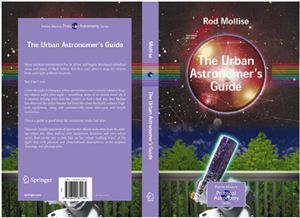Springer, 2006. - 257 Pages.
Most amateur astronomers yea to observe more frequently. Many of them, however, live in urban and highly developed suburban areas that are heavily light polluted. Due to this light pollution, they are under the impression that deep sky objects—nebulae, galaxies, star clusters—are either invisible or not worth viewing from home. This book describes the many objects that can be seen in a bright urban sky, and shows the city or suburban astronomer how to observe object after object, season after season.
This book covers the "why, " "how, " and "what" of astronomy under light-polluted skies. The prospective city-based observer is told why to observe from home (there are hundreds of spectacular objects to be seen from the average urban site), how to observe the city sky (telescopes, accessories, and modes techniques), and what to observe. About 50% of the book is devoted to describing "tours" of the sky, with physical and observational descriptions, at-the-eyepiece drawings, and photographs.
Most amateur astronomers yea to observe more frequently. Many of them, however, live in urban and highly developed suburban areas that are heavily light polluted. Due to this light pollution, they are under the impression that deep sky objects—nebulae, galaxies, star clusters—are either invisible or not worth viewing from home. This book describes the many objects that can be seen in a bright urban sky, and shows the city or suburban astronomer how to observe object after object, season after season.
This book covers the "why, " "how, " and "what" of astronomy under light-polluted skies. The prospective city-based observer is told why to observe from home (there are hundreds of spectacular objects to be seen from the average urban site), how to observe the city sky (telescopes, accessories, and modes techniques), and what to observe. About 50% of the book is devoted to describing "tours" of the sky, with physical and observational descriptions, at-the-eyepiece drawings, and photographs.

